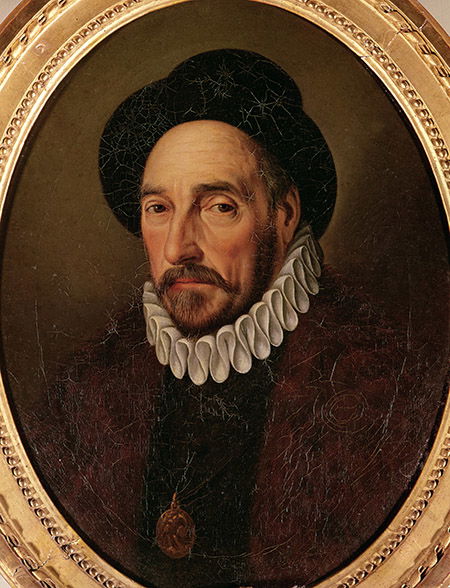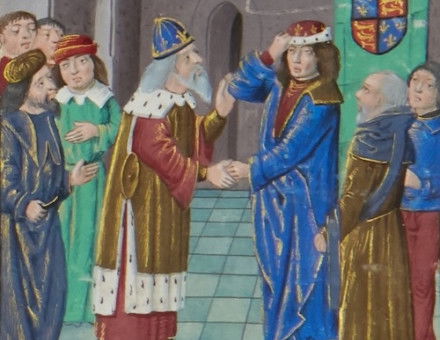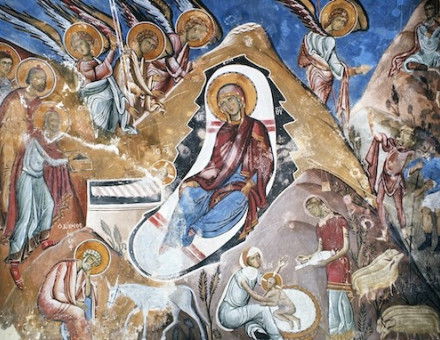‘Montaigne: A Life’ by Philippe Desan review
While Montaigne: A Life by Philippe Desan review Montaigne might include debatable interpretations of his Essays, it is an essential study of the writer's life.

Michel de Montaigne was not just the inventor of a genre, nor merely the author of the Essays, which have gripped readers from Shakespeare to Virginia Woolf and Orson Welles. He also led an extraordinary life. Descended from merchants, he underwent unusual immersion in Latin during his pre-school years. From the age of six onwards he was taught by leading Renaissance humanists (including the Scot George Buchanan) at the Collège de Guyenne in Bordeaux. Michel entered the nobility, thanks to a combination of the family’s seigneury (purchased by his grandfather) and a councillorship in the Bordeaux Parlement (obtained through nepotism). There, he drafted reports on thorny lawsuits, which he helped judge. But, opposed to the condemnation to death of Protestants by the Parlement and with his options changed by the loss of his father, when he was passed over for promotion Michel resigned his office and withdrew to the family estate, aged just 38.
Although Montaigne’s tower was soon built – complete with chapel, bedroom and library – he did not immediately become the reclusive author of legend. Certainly, he spent some of the ensuing decade writing a work published in 1580 as the Essays (later greatly expanded). He also forged a new career as emissary and negotiator in the Wars of Religion that were tearing France apart. Recommended to the king (Charles IX) by a powerful Guyenne neighbour (Gaston de Foix), whose château was just 20 kilometres away, Montaigne was made Knight of the Order of St Michael. It was a huge social leap. Unusually, he also became Gentleman of the Chamber of the great pretender to the throne, the Protestant Henri
de Navarre (later Henri IV). Montaigne was a go-between, valued by both sides.
Having deposited his Essays with the printers, he set off on a 13-month round trip to Italy. Why? To see the world, according to tradition, or in a vain bid to become ambassador to Rome or something similar, according to Desan. On the way home, Montaigne learned with regret that he had been elected Mayor of Bordeaux. He served a two-year term before being more willingly re-elected. Meanwhile, the ferocious violence of the Wars of Religion intensified, with the Catholic League now a third force alongside the monarchy and the Protestants. Insecurity reigned. The ex-mayor was a sitting duck in his château, a likely hostage or target. For a few months, he and his family were reduced to wandering the highways. While in Paris in 1588, getting his expanded Essays printed, he was briefly imprisoned as a royal loyalist by League sympathisers. His final years were marked by political marginalisation, ill health and further writing.
The story is told in absorbing detail by Desan. Drawing on a wealth of research by himself and others, he provides a richer picture than did Donald Frame in his classic biography half a century ago. Desan immerses us in worlds of municipal and national machination. He describes the mayor feeding intelligence to the royal military commander in the surrounding province of Guyenne, while also trying to regulate rubbish-dumping and boat traffic in Bordeaux itself.
A particular challenge facing any biographer of Montaigne is the autobiographical dimension of the Essays themselves. Desan is intent on breaking the stranglehold they have exerted over our image of Montaigne’s life. This biography offers fresh analyses not just of well-known omissions (of Montaigne’s wife and the St Bartholomew’s Day Massacre) but also of distortions, such as his tactical redating and relocating of his alleged encounter with some captive Tupinambá Indians. Inevitably, the gap opened up by this salutary critical distance from Montaigne’s self-representations is filled by the biographer’s own representations. Desan believes Montaigne was an ambitious social climber and political operator. He may well be right, but he gives that dimension such weight that it tends to override alternative or coexisting motives and desires. Even Montaigne’s unprecedented and original self-studying becomes a kind of consolation prize of his final years (‘introspection for lack of something better’). The subtitle of Desan’s original 2014 French version was ‘A political biography’, more accurate than ‘A life’. Desan argues, largely persuasively, that successive versions of the Essays published in Montaigne’s lifetime each had different social, political and economic motivations. But the argument seems over-egged when it leads him to characterise those versions reductively: the first (1580) was political and diplomatic, whereas the last was ‘essentially literary and philosophical’. This seems an inappropriately clear-cut way of describing a writer so preoccupied with how his mind (and ours) roves across precisely such divisions. While some of Desan’s interpretations of the Essays are questionable, his biography is indispensable.
Montaigne: A Life
Philippe Desan
Translated by Steven Rendall and Lisa Neal
Princeton University Press 816pp £29.95
Neil Kenny is Senior Research Fellow at All Souls College, Oxford. His books include Death and Tenses: Posthumous Presence in Early Modern France (Oxford, 2015).




